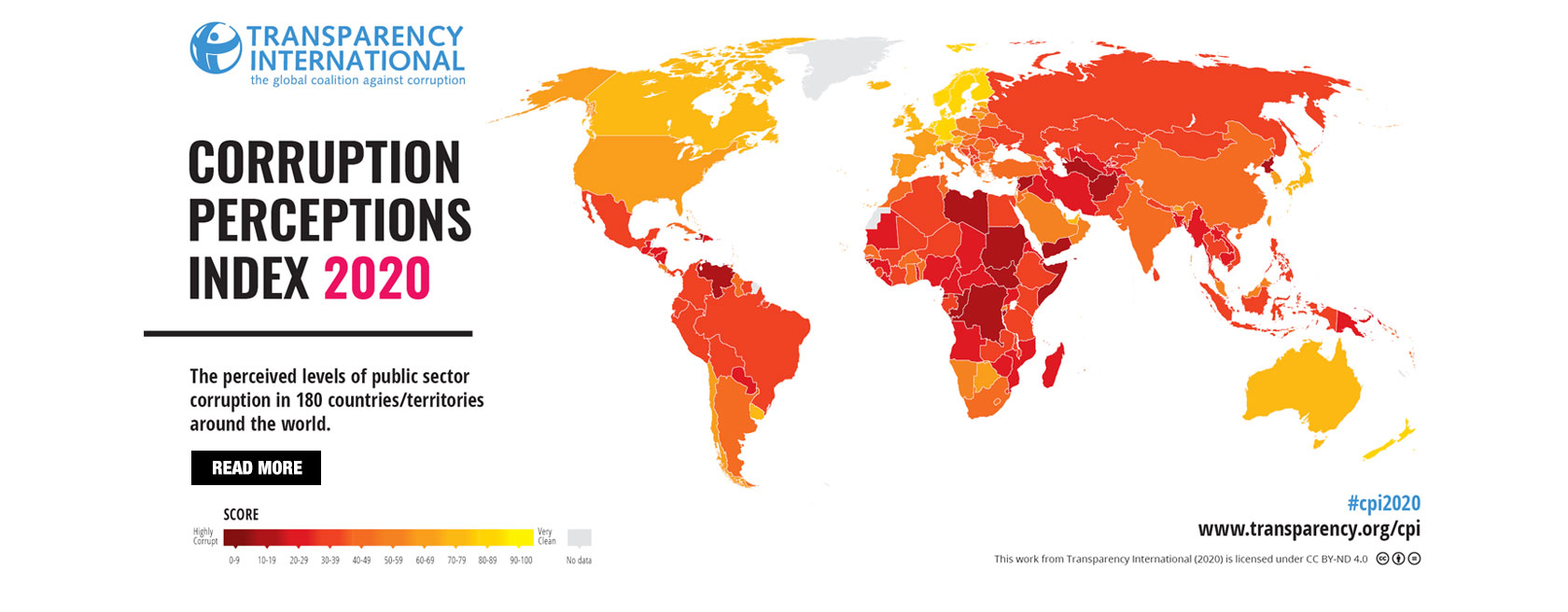Sri Lanka remains stagnant on the annual Corruption Perceptions Index (CPI) compiled by Transparency International (TI), the global movement against corruption. Sri Lanka has scored 38 on the CPI 2020 retaining the same score from the previous year; on a scale of 0 (highly corrupt) to 100 (very clean). Amongst our regional neighbours, Sri Lanka has fared poorer than Bhutan (68), the Maldives (43) and India (40). Sri Lanka ranks 92nd in the CPI 2020 compared to 89th in 2018 and 93rd in 2019. It must be underscored that when interpreting the CPI, the focus should be on each country’s individual score rather than on the rank which can fluctuate based on the scores of other countries.
Speaking on the country’s performance on the CPI 2020, Executive Director of Transparency International Sri Lanka (TISL), Attorney-at-Law Nadishani Perera said, “Despite the stated anti-corruption commitments of successive governments over the past decade, Sri Lanka’s stagnation on the CPI is a reflection on how experts and businesses continue to perceive these efforts as non-starters. We must also re-iterate that this stagnation is validated by the limited progress that has been seen on numerous anti-corruption cases over the past several years”.
It must also be noted that initiatives such as the National Action Plan for Combatting Bribery and Corruption in Sri Lanka spearheaded by the Commission to Investigate Allegations of Bribery or Corruption (CIABOC) are yet to see any meaningful traction on the legislative front, since. Furthermore, the absence of frameworks for regulating campaign financing and recent developments such as “noquestions asked” policies on deposits of foreign currency, could further deteriorate the country’s CPI score in the years to come.
Perera added, “Questions are still being asked amongst the public today regarding the manner in which funds allocated for COVID-19 relief and grants or donations received from overseas have been utilised. The asking of these questions does not necessarily imply that corruption has occurred in these processes, instead it should be viewed by the government as an opportunity to promote and foster a culture of transparency which in turn would have a positive impact on perceptions of corruption as measured by the CPI”.
________________________________________

